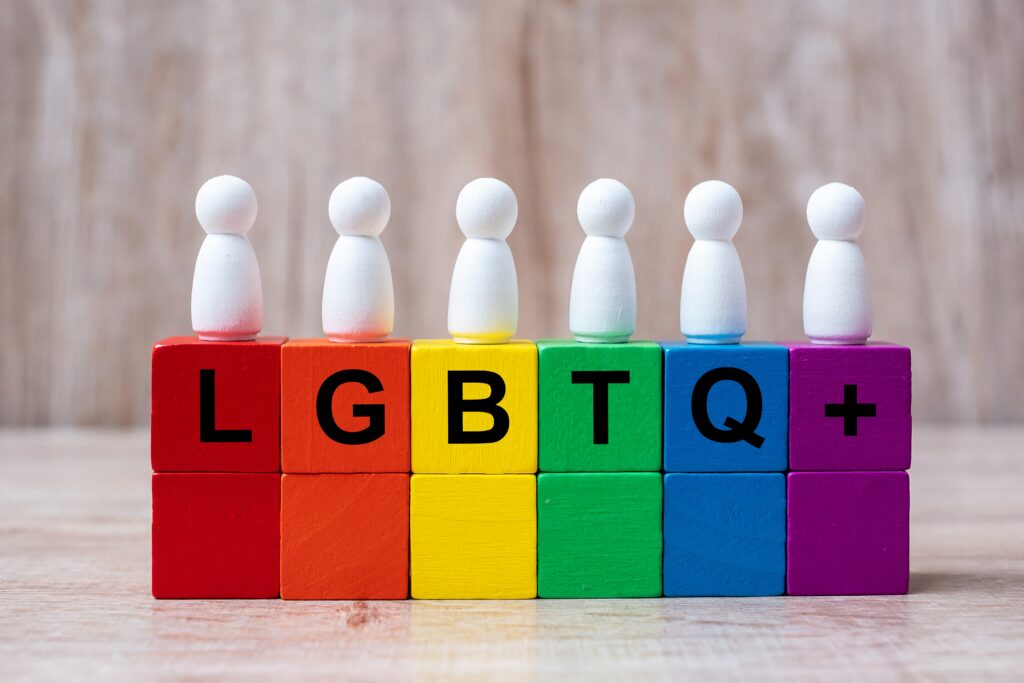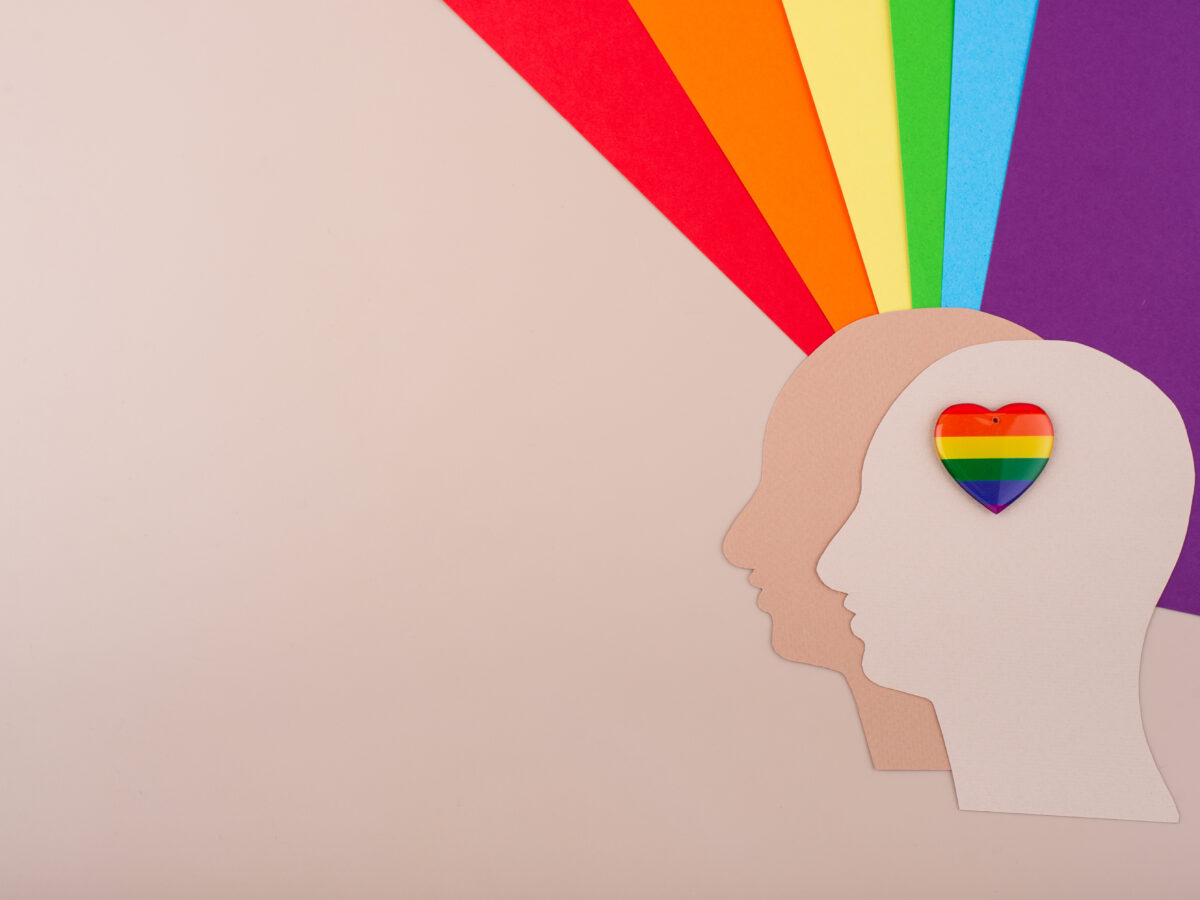In the realm of mental health care, LGBTQ affirmative therapy stands as a beacon of inclusivity, understanding, and empowerment for individuals who identify as lesbian, gay, bisexual, transgender, queer, or other diverse identities within the LGBTQ spectrum. This specialized approach to therapy is not merely a clinical method but a profound commitment to recognizing and affirming the unique experiences, challenges, and strengths of LGBTQ individuals.
LGBTQ affirmative therapy emerges from the understanding that LGBTQ clients often face distinct societal pressures, discrimination, and internal struggles related to their sexual orientation, gender identity, and expression. These challenges can profoundly impact mental health, contributing to higher rates of anxiety, depression, substance abuse, and other mental health concerns compared to their heterosexual and cisgender counterparts.
Understanding LGBTQ Affirmative Therapy
LGBTQ affirmative therapy represents a significant evolution in mental health care, specifically tailored to meet the unique needs and challenges faced by individuals within the LGBTQ community. Unlike traditional therapy approaches that may inadvertently overlook or misunderstand LGBTQ-specific issues, affirmative therapy is grounded in principles of respect, affirmation, and cultural competence. Here’s a detailed exploration of what defines and distinguishes LGBTQ affirmative therapy:
Foundations of Affirmation and Validation
Respect for Identity: Affirmative therapy begins with a fundamental respect for the client’s sexual orientation, gender identity, and expression. Therapists acknowledge and affirm the validity of these identities, creating a space where clients feel accepted, understood, and empowered.
Validation of Experiences: LGBTQ affirmative therapists validate the lived experiences of their clients, recognizing the impact of societal stigma, discrimination, and minority stress on mental health. This validation helps clients feel heard and encourages open exploration of their emotions and challenges.
Cultural Competence and Knowledge
Specialized Training: Therapists practicing LGBTQ affirmative therapy undergo specialized training in LGBTQ-specific terminology, experiences, and community dynamics. This cultural competence allows therapists to provide informed and effective care that respects the diversity and complexity within the LGBTQ community.
Understanding Intersectionality: Affirmative therapists recognize the intersectionality of identities, such as race, ethnicity, socioeconomic status, and disability, which intersect with LGBTQ identities to shape individual experiences and challenges.
Support for Identity Exploration
Navigating Identity Development: LGBTQ affirmative therapy supports clients in exploring and affirming their sexual orientation, gender identity, and expression. Therapists assist clients in navigating key milestones such as coming out, transitioning, or reconciling their identity with cultural or familial expectations.
Addressing Internalized Stigma: Therapy helps clients confront and mitigate internalized stigma and shame related to their LGBTQ identity. Through compassionate guidance and support, therapists promote self-acceptance and positive identity development.
Addressing Minority Stress and Mental Health Concerns
Understanding Minority Stress: Affirmative therapy acknowledges the impact of minority stress—chronic stressors related to prejudice, discrimination, and social marginalization—on mental health. Therapists work collaboratively with clients to develop coping strategies, resilience, and self-care practices to navigate these stressors.
Addressing Mental Health Concerns: Therapists are skilled in addressing a wide range of mental health concerns prevalent among LGBTQ individuals, including depression, anxiety, trauma, and substance abuse. Therapy focuses on improving emotional well-being, enhancing coping skills, and fostering a sense of empowerment.
Creating a Safe and Inclusive Therapeutic Environment
Safe Space: Affirmative therapy creates a safe and nonjudgmental environment where clients can freely explore their thoughts, feelings, and concerns. Therapists prioritize creating a therapeutic alliance based on trust, empathy, and mutual respect.
Inclusive Practices: Therapists use inclusive language, respect preferred names and pronouns, and avoid assumptions about clients' identities or experiences. This inclusive approach fosters trust and openness in the therapeutic relationship.
The Core Principles of LGBTQ Affirmative Therapy
LGBTQ affirmative therapy is distinguished by its commitment to creating a supportive and affirming therapeutic environment specifically tailored to meet the needs of lesbian, gay, bisexual, transgender, queer, and other diverse identities within the LGBTQ community. Grounded in principles of respect, affirmation, cultural competence, and advocacy, affirmative therapy aims to address the unique challenges and promote the well-being of LGBTQ individuals. Here are the core principles that define LGBTQ affirmative therapy:
Affirmation of Identity and Expression
Respect and Validation: Affirmative therapy begins with a fundamental respect for the client's sexual orientation, gender identity, and expression. Therapists affirm and validate the client's identity as central to their self-concept and well-being.
Use of Preferred Names and Pronouns: Therapists respect and use the client's chosen name and pronouns, affirming their gender identity and promoting a sense of safety and validation in the therapeutic relationship.
Cultural Competence and Knowledge
Understanding LGBTQ Experiences: Affirmative therapists undergo specialized training to understand the diverse experiences, terminology, and challenges faced by LGBTQ individuals. This cultural competence enables therapists to provide informed and effective care that respects the nuances of LGBTQ identities.
Intersectionality Awareness: Therapists recognize the intersectionality of identities, including race, ethnicity, socioeconomic status, disability, and others, which intersect with LGBTQ identities to shape individual experiences and mental health needs.
Support for Identity Exploration and Development
Navigating Identity Milestones: Affirmative therapy supports clients in exploring and affirming their sexual orientation, gender identity, and expression. Therapists assist clients in navigating critical life transitions, such as coming out, transitioning, or integrating their identity into various aspects of their life.
Addressing Internalized Stigma: Therapy helps clients confront and mitigate internalized stigma and shame related to their LGBTQ identity. Through compassionate exploration and support, therapists promote self-acceptance and positive identity development.
Addressing Minority Stress and Mental Health Concerns
Acknowledgment of Minority Stress: Affirmative therapy acknowledges the impact of minority stress—chronic stressors related to prejudice, discrimination, and social marginalization—on the mental health of LGBTQ individuals. Therapists work collaboratively with clients to develop coping strategies, resilience, and self-care practices.
Comprehensive Mental Health Support: Therapists are equipped to address a wide range of mental health concerns prevalent among LGBTQ individuals, including depression, anxiety, trauma, substance abuse, and suicidality. Therapy focuses on improving emotional well-being, enhancing coping skills, and fostering empowerment.
Creating a Safe and Inclusive Therapeutic Environment
Safe and Nonjudgmental Space: Affirmative therapy creates a therapeutic environment where clients feel safe, respected, and free from judgment. Therapists prioritize establishing a therapeutic alliance based on trust, empathy, and mutual understanding.
Inclusive Practices: Therapists use inclusive language, avoid assumptions about clients' identities or experiences, and respect the diversity within the LGBTQ community. This inclusive approach fosters a sense of belonging and validation in therapy sessions.

The Role of LGBTQ Affirmative Therapy in Mental Health
LGBTQ affirmative therapy plays a crucial role in addressing the unique mental health needs and challenges faced by lesbian, gay, bisexual, transgender, queer, and other diverse identities within the LGBTQ community. This specialized therapeutic approach is designed to create a supportive, affirming, and inclusive environment where LGBTQ individuals can explore their identities, navigate life transitions, and address mental health concerns with compassion and understanding. Here’s an in-depth look at the significant role of LGBTQ affirmative therapy in promoting mental health:
Affirmation and Validation of Identity
Respect and Affirmation: Affirmative therapy begins with validating and respecting the client's sexual orientation, gender identity, and expression. Therapists acknowledge the client's identity as central to their self-concept and provide a space where they can safely explore and affirm their identity.
Use of Preferred Names and Pronouns: Therapists use the client's chosen name and pronouns, promoting a sense of validation and safety in the therapeutic relationship. This affirmation helps clients feel accepted and understood, reducing the impact of societal stigma and discrimination.
Addressing Minority Stress
Understanding Minority Stress: LGBTQ individuals often experience minority stress—chronic stressors related to prejudice, discrimination, and social marginalization based on their LGBTQ identities. Affirmative therapists recognize and validate these experiences, helping clients navigate and mitigate the impact of minority stress on their mental health.
Developing Coping Strategies: Therapists collaborate with clients to develop effective coping strategies and resilience against minority stress. This may include mindfulness techniques, stress management skills, and cultivating supportive social networks within the LGBTQ community.
Support for Identity Exploration and Development
Navigating Identity Transitions: Affirmative therapy supports clients in navigating important identity milestones, such as coming out, transitioning, or reconciling their identity with familial or cultural expectations. Therapists provide guidance, support, and resources to empower clients throughout their identity development journey.
Addressing Internalized Stigma: Therapy helps clients confront and overcome internalized stigma and shame related to their LGBTQ identity. Through compassionate exploration and support, therapists promote self-acceptance, self-esteem, and positive identity affirmation.
Promoting Emotional Well-being and Resilience
Comprehensive Mental Health Support: Affirmative therapists are trained to address a wide range of mental health concerns prevalent among LGBTQ individuals, including depression, anxiety, trauma, substance abuse, and suicidality. Therapy focuses on enhancing emotional well-being, improving coping skills, and fostering empowerment.
Creating a Safe Therapeutic Environment: Therapy sessions are conducted in a safe, non-judgmental, and confidential environment where clients can freely express their thoughts, feelings, and concerns. Therapists prioritize establishing a trusting therapeutic alliance based on empathy, respect, and mutual understanding.
Advocacy and Community Connection
Advocating for Client Rights: Affirmative therapists advocate for LGBTQ client rights, including access to affirming healthcare, legal protections, and social acceptance. Therapists empower clients to assert their identities, navigate societal challenges, and participate in advocacy efforts for systemic change.
Connecting with LGBTQ Resources: Therapists connect clients with LGBTQ-affirming resources, support groups, community centers, and peer networks. These connections provide additional support, validation, and a sense of belonging outside of therapy sessions.
Benefits of LGBTQ Affirmative Therapy
LGBTQ affirmative therapy offers a range of benefits specifically tailored to meet the unique needs and challenges faced by lesbian, gay, bisexual, transgender, queer, and other diverse identities within the LGBTQ community. This specialized therapeutic approach is grounded in principles of affirmation, respect, cultural competence, and advocacy, aiming to promote mental health and well-being through a supportive and inclusive environment. Here are the key benefits of LGBTQ affirmative therapy:
Affirmation of Identity and Expression
Validation and Respect: Affirmative therapy validates and respects the client's sexual orientation, gender identity, and expression. Therapists affirm the client's identity as valid and integral to their sense of self, fostering a safe and validating therapeutic environment.
Use of Preferred Names and Pronouns: Therapists use the client's chosen name and pronouns, promoting a sense of affirmation and reducing the impact of societal stigma and discrimination. This practice enhances trust and rapport in the therapeutic relationship.
Cultural Competence and Understanding
Knowledge of LGBTQ Issues: Affirmative therapists undergo specialized training to understand LGBTQ-specific terminology, experiences, and challenges. This cultural competence enables therapists to provide informed and effective care that respects the diversity within the LGBTQ community.
Intersectionality Awareness: Therapists recognize the intersectionality of identities, such as race, ethnicity, socioeconomic status, disability, and others, which intersect with LGBTQ identities to shape individual experiences and mental health needs.
Support for Identity Exploration and Development
Navigating Identity Transitions: Affirmative therapy supports clients in exploring and affirming their sexual orientation, gender identity, and expression. Therapists provide guidance, resources, and support throughout critical identity milestones, such as coming out or transitioning.
Addressing Internalized Stigma: Therapy helps clients confront and overcome internalized stigma and shame related to their LGBTQ identity. Through compassionate exploration and support, therapists promote self-acceptance, self-esteem, and positive identity affirmation.
Enhanced Mental Health Outcomes
Reduction of Minority Stress: Affirmative therapy addresses minority stress—chronic stressors related to prejudice, discrimination, and social marginalization based on LGBTQ identities. Therapists help clients develop coping strategies, resilience, and self-care practices to mitigate the impact of these stressors.
Improvement in Emotional Well-being: Therapists assist clients in managing and reducing symptoms of mental health concerns commonly experienced by LGBTQ individuals, such as depression, anxiety, trauma, and substance abuse. Therapy focuses on enhancing emotional resilience and improving overall well-being.
Creating a Safe and Inclusive Therapeutic Environment
Safe Space for Exploration: Affirmative therapy creates a nonjudgmental and confidential space where clients can explore their thoughts, feelings, and concerns freely. Therapists prioritize establishing a trusting therapeutic alliance based on empathy, respect, and mutual understanding.
Inclusive Practices: Therapists use inclusive language, avoid assumptions about clients' identities or experiences, and respect the diversity within the LGBTQ community. This inclusive approach fosters a sense of belonging and validation in therapy sessions.
Empowerment and Advocacy
Advocacy for Client Rights: Affirmative therapists advocate for LGBTQ client rights, including access to affirming healthcare, legal protections, and social acceptance. Therapists empower clients to assert their identities, navigate societal challenges, and participate in advocacy efforts for systemic change.
Connection with Community Resources: Therapists connect clients with LGBTQ-affirming resources, support groups, community centers, and peer networks. These connections provide additional support, validation, and a sense of belonging outside of therapy sessions.
Conclusion
In conclusion, LGBTQ affirmative therapy stands as a vital and transformative approach within the field of mental health care, specifically tailored to meet the unique needs of LGBTQ individuals. Through its foundational principles of affirmation, respect, cultural competence, and advocacy, affirmative therapy creates a safe, supportive, and inclusive environment where clients can explore their identities, address mental health concerns, and navigate life's challenges with dignity and empowerment.
The benefits of LGBTQ affirmative therapy are profound and far-reaching. By affirming identities and validating experiences, therapists foster a sense of acceptance and belonging that is crucial for LGBTQ individuals' mental and emotional well-being. This validation helps mitigate the impact of societal stigma and discrimination, promoting resilience against minority stressors and supporting positive identity development.
Moreover, affirmative therapy plays a crucial role in promoting mental health by addressing a wide range of concerns such as depression, anxiety, trauma, and substance abuse. Therapists work collaboratively with clients to develop effective coping strategies, enhance emotional resilience, and improve overall quality of life.
Creating a safe and inclusive therapeutic environment is fundamental to affirmative therapy. Therapists prioritize trust, empathy, and mutual understanding in their therapeutic relationships, using inclusive practices that respect and honor the diversity within the LGBTQ community. This approach not only supports individual clients but also contributes to broader societal acceptance and understanding of LGBTQ identities.
Related Articles:
Supporting Your LGBTQ Child: A Parent’s Guide
Addressing Substance Abuse in the LGBTQ Community
Coping with Discrimination: Strategies for LGBTQ+ Individuals
Mental Health Challenges in the LGBTQ+ Community
LGBTQ+ Youth – Psychological Challenges & Support Pathways



